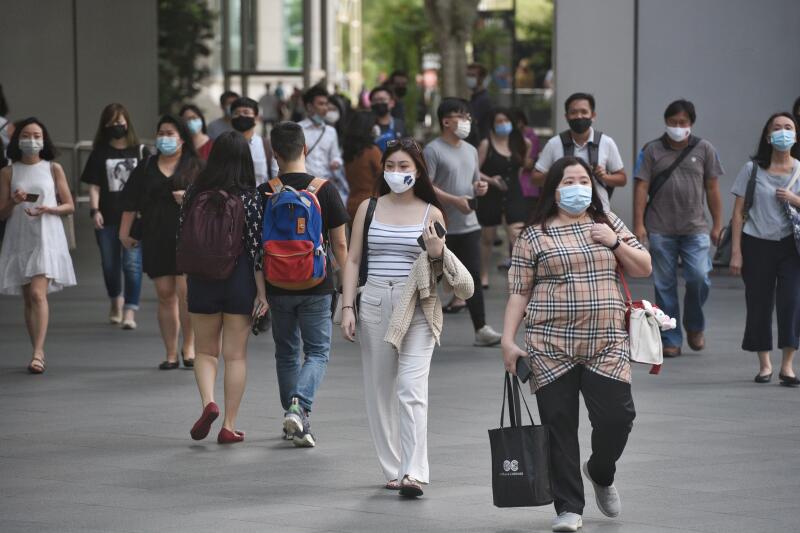Bosses unlikely to mandate vaccination for staff, say experts
Sign up now: Get ST's newsletters delivered to your inbox

The planned vaccination programme is voluntary and free for all Singaporeans and long-term residents here.
ST PHOTO: DESMOND WEE
Follow topic:
When the Covid-19 vaccines are rolled out from next year for most residents, interior design firm Design 4 Space plans to dangle a trip to Japan to encourage its staff to get the shots.
Although the vaccination programme here is voluntary, the company's chief executive Richard Yea is encouraging his more than 70 employees to get vaccinated.
"In this trade, we have to meet home owners frequently. If our staff are vaccinated, home owners will feel more comfortable engaging and interacting with us," he said, adding that company trips overseas were previously reserved only for the top performers.
Medical experts, human resource practitioners and business associations The Straits Times approached said employers in Singapore are unlikely to mandate Covid-19 vaccination for their workforce. But many will strongly encourage their staff to get the jabs.
For some companies, this means offering incentives. These can include giving staff time off as well as support for flexible work arrangements, said Mr Ang Yuit, vice-president of the Association of Small and Medium Enterprises.
But he added: "Most companies will unlikely be too forceful over having their staff receive vaccination unless there are some specific operational reasons internally."
Singapore Business Federation chief executive Ho Meng Kit agreed, adding that the company management can lead by example and be the first to take the shots.
The first batch of the Pfizer-BioNTech Covid-19 vaccine arrived in Singapore on Dec 21, the first step in vaccinating the population.
The planned vaccination programme is voluntary and free for all Singaporeans and long-term residents here, Prime Minister Lee Hsien Loong had made clear on Dec 14.
Medical experts said there is no need for employers to push their staff to get the shots.
"At the moment, case numbers in Singapore are very low so there isn't a pressing need to make vaccination compulsory," said Associate Professor Hsu Li Yang, an infectious diseases expert at the National University of Singapore's Saw Swee Hock School of Public Health.
Dr Leong Hoe Nam, an infectious diseases specialist from Mount Elizabeth Novena Hospital, said the risk of infection is "extremely low in public".
"It will be unfair to force individuals to trade a low risk of infection with uncertainty about the long-term side effects of Covid-19 vaccines that are yet to be fully understood," he added.
However, he said employees should still vaccinate since the risk of doing so is low.
"Vaccination is putting up defences against the virus. It's not just the Government's role, but everyone plays a part.
"It's only as strong as the participation from everyone... It allows us to be safe individually and the country to have herd immunity, and the country to open up economically," added Dr Leong.
Singapore entered phase three of its reopening yesterday, with plans to loosen some restrictions on workers returning to offices.
Mr Calvin Lim, general manager of CDPL (Tuas) Dormitory, said the company will follow the Government's directive on vaccinations and let staff make their own decisions.
"But given that our jobs should be defined as front-liners, we are likely to get the vaccination regardless," he said. The firm has around 30 staff.
PeopleWorldwide Consulting managing director David Leong said employees have the right to raise concerns about possible risks if they have colleagues who choose not to be vaccinated. But firms should not forbid those who do not receive the shots from entering the office.
"Technically, the risk of exposure is low when safe distancing practices are observed. It's no different from today's reality," he said.
Mr David Calkins, regional managing principal of the Asia-Pacific and Middle East at global architecture firm Gensler, believes that the majority of the 54 staff at the firm's Singapore office are open to getting vaccinated.
"We suspect that we won't have to provide much encouragement to those of us who are in client-facing roles and those who are hoping to be going on business travel in the future to take the vaccination," he said.
"But even as the vaccine becomes more widely available around the globe, we are anticipating continuing a flexible work mode for much of next year," he added.

